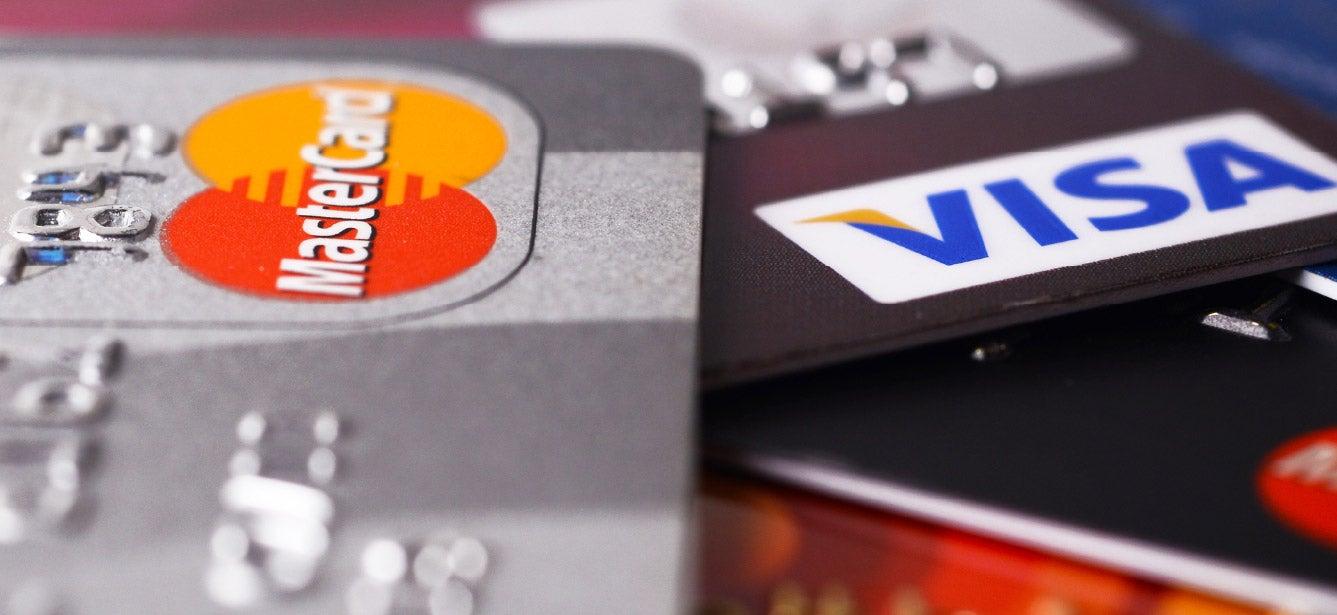
Related Topics
No one wants to live with a cloud of debt hanging over their head. Yet increasingly, older adults are retiring with debt. In 2001, just 24.2% of senior households held credit card balances; by 2016, it was more than 34.2%. CNBC recently reported that adults age 65+ are carrying an average credit card balance of $4,700.
High interest rates—which can top 35% or more—can cause credit card debt to quickly spiral out of control, even if you pay more than the minimum payment each month. If you find yourself burdened by bills, credit card debt consolidation could help take some of the weight off your shoulders.
What is debt consolidation?
The idea behind debt consolidation is simple—you take out a new loan with a lower interest rate and roll all your account balances into that loan. This accomplishes two things. First, it helps reduce the amount you have to pay each month by condensing multiple monthly payments into one. It also saves you money on interest, allowing you to pay down the principal faster.
Debt consolidation may be worth exploring if you have multiple credit cards with outstanding balances and you're having trouble keeping up with payments. It's important to understand that credit card debt consolidation is not a quick fix. It does not eliminate your debt, and there are some financial risks to consider. Before making the move to consolidate your credit card debt, take the time to learn about the different ways you can do it.
What's the best way to consolidate credit card debt?
When it comes to getting a credit card consolidation loan, you have several options—each with its own advantages and drawbacks. We discuss some of them below.
1. Credit card balance transfer
You’ve probably seen credit card companies offering 0% or low-interest balance transfers. These cards provide a special introductory interest rate in exchange for transferring your balance from another credit card(s). Balance transfer promotions may give you anywhere from six to 21 months of reduced interest, which could save you substantial money as you pay down your principal balance. After the promotional period is over, the interest rate will return to the regular annual percentage rate (APR).
What to consider: A credit card balance transfer may be a good option if you have a decent credit (FICO®) score of 670 or higher. The debt you transfer must fall within the new card’s credit limit. Also, you should only go this route if you know you can pay off the debt before the promotional period expires.
2. Debt consolidation loan
Your local credit union or bank may offer a personal loan product that can be used for debt consolidation. These loans often have interest rates lower than a typical credit card APR, which can save you money while simplifying your payments. For instance: suppose you had a credit card debt of $9,200 at an APR of 18%. You make minimum payments for 88 months until it's paid off. During this time, you’d end up paying a total of $7,430.30 in interest.
However, if you roll that balance into a personal loan with an APR of 7% and pay it off over a period of 60 months, you’d end up paying only $1,730.26 in interest. That's a savings of $5,700.04!
A personal debt consolidation loan may be something to explore if you're unable to get a low-interest credit card. Some older adults also prefer the structured repayment plan of a personal loan—as opposed to being tempted to save cash by making only minimum payments on a credit card.
What to consider: Personal loans don't always come with competitive interest rates. In addition, some have upfront fees that can range anywhere from 1% to 8% of the total loan amount. A high origination fee may cancel out any potential interest savings.
3. Home equity loan
If you own your home, you may be able to tap into its value to consolidate your credit card debt. A home equity loan or home equity line of credit (HELOC) allows you to borrow money against the equity in your home. The benefits of a home equity loan include a lower, fixed interest rate and fixed repayment term. What's more, with some lenders, you may be able to get a home equity loan even if you have less-than-stellar credit.
What to consider: Since this type of loan uses your home as collateral, you could wind up losing your house if you're unable to make payments. Many home equity loans also come with closing costs. Like with a personal loan, these added costs can cut into any savings you get with a lower interest rate.
4. Debt management plan
If you're carrying a large amount of credit card debt and don't qualify for other debt consolidation tools, consider a debt management plan. Just like a credit card balance transfer or personal loan, this arrangement allows you to roll multiple credit card balances into one simple monthly payment.
However, unlike balance transfer cards and personal loans, a debt management plan is usually offered through a credit counseling agency. You work directly with a certified credit counselor, who contacts your creditors to negotiate a payment amount you can afford. Each month, you'll make one payment to the plan's administrator, who is responsible for distributing the money to your creditors. Debt management plans typically last anywhere from three to five years until the debt has been fully paid off.
What to consider: While you have an active debt management plan, you cannot use credit credits or open new lines of credit. Additionally, there's no guarantee all your creditors will agree to the terms of a repayment plan. This can make paying off your debt more complicated. Lastly, your credit score may drop a few points if you enroll in a debt management plan. However, as you pay down your balances, your score should slowly recover.
There’s hope for getting out of credit card debt
“Debt is a big obstacle to financial well-being for older Americans, especially those already struggling to make ends meet,” says Brandy Bauer, former Director of the MIPPA Resource Center.
If you're determined to pay off your credit cards, debt consolidation is one tool that could help. But it’s important to weigh all the pros and cons before moving forward with this option,” Bauer said.
Visit NCOA's Budget CheckUp to learn how to make your money work harder each month. You can also browse BenefitsCheckUp to see how you can save money on the basic costs of living.




